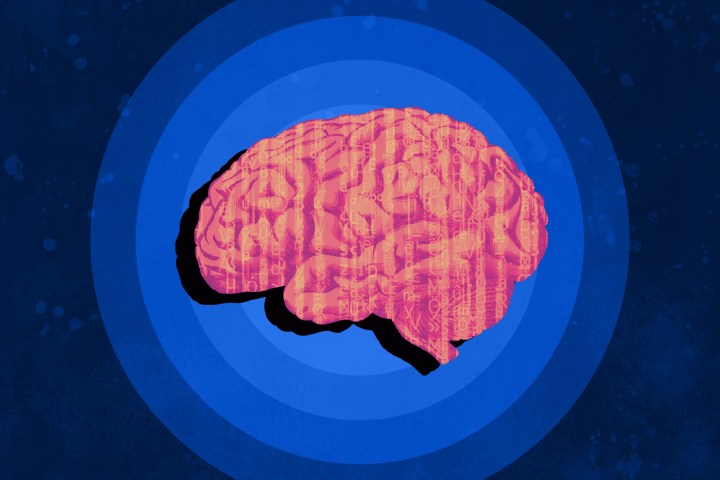From in-person classes at school to remote learning, and from apps to tandem partners, there seems to be no end to tools and approaches that help you learn a new language. One seemingly wild idea is that you can even learn a language by listening to it at night while you’re asleep. Isn’t that appealing: The idea that you could make use of your time in bed to help you master your language skills?
But can you really learn while you sleep? To find out what the science has to say, we spoke to Rebecca Crowley, a research associate at Royal Holloway, University of London, who performs experiments on sleep and language learning.
How to learn a language
As much as it would be handy, you won’t become a fluent French speaker simply by putting on some French audiobooks while you snooze. That’s because you need to understand the structure, grammar, and vocabulary of a language to speak it properly.
Learning a language is a complicated psychological process. The research on exactly how language learning occurs is still ongoing, but current evidence suggests that when you learn a new word, you do so via what is called an episodic memory. That means you remember the event of learning the word — where you were, who you were with, and so on.

To really understand and use a new word, you need to link that word to other related words in the language. This adds the word to what researchers call your mental lexicon, which is like an internal dictionary of words you know and their meanings. It’s this process of moving a word from an episodic memory into the mental lexicon that seems to occur during sleep.
How sleep helps you learn
There are several stages of sleep, Crowley explains. There’s a surface level of sleep, then two deeper levels that are divided into rapid eye movement (REM) and non-REM sleep.
You might have heard of REM sleep, which is when most people think that dreaming occurs. But Crowley says that dreams actually occur throughout all stages of sleep. The important differences between these stages for learning is that the non-REM and REM phases are when memories are consolidated.
“Consolidation is about strengthening the information and integrating it into networks of information that already exist, for long-term storage,” Crowley said. “It seems like sleep plays a really crucial role in the consolidation phase of learning.”
If you’re listening to something full of words you’ve never heard before, that probably won’t be helpful.
You should also know that sleep is vital for good cognitive functioning overall. When you’re sleep deprived, you struggle to focus and pay attention, and that means you’ll get less out of your lessons. Sleep deprivation also impairs the consolidation process mentioned above.
School and college schedules can often be punishing, especially if you’re having to get up for early classes after staying up late working on assignments; you may be chronically sleep deprived. This is bad for your physical and mental health, as well as your ability to learn, so try to get a good night’s sleep as often as you can. That equates to seven to 10 hours per night for most people, so don’t skip out on time in bed if you’re hoping to perform well at school.
What’s going on in the brain
So, sleep is important to help you learn, but can playing information out loud while you sleep be helpful to this process? The research done by Crowley and others suggests that it can due to the way language is processed in the brain.
When you learn a new piece of information, “it seems to be initially stored in the hippocampus, which is a deep brain structure,” Crowley said. “It’s then during sleep that the neurons, which represent the memory trace, seem to refire. So they actively replay, and it’s through this replay process that the information is redistributed from the hippocampus to more neocortical areas, which is where they’re stored long-term.”

This busy neural activity is happening while you sleep, and it turns out that the processes can be influenced by what you hear during this period, even if you’re not consciously aware of it.
“If you replay piece[s] of information during sleep, you can bias the intrinsic replay process and cause the memory traces for the information that’s being played out loud to be replayed internally,” Crowley said. “Then, memory for that information is strengthened.”
Practical advice for language students
Crowley said that the best way to learn a language is through instruction, such as taking a class in person or online. There are other ways to learn as well, like testing. As much as students might dread tests, being forced to recall specific information is a great way to reinforce memories and help information stick.
It can also help to expose yourself to the language you’re learning in everyday contexts, like listening to the radio or watching a TV show in that language. This exposure seems to force you to recall words you’ve previously learned, helping to cement them.
However, to benefit from exposure while you sleep, you need to be listening to material that you have some familiarity with. If you’re listening to something full of words you’ve never heard before, that probably won’t be helpful.

So, playing an audiobook or radio show with familiar words in it will be somewhat beneficial. From current research, it looks like the most beneficial thing to play would be an audio recording of your classes. That’s because you’re trying to access the episodic memory of learning — that’s the memory of the event where you learned the word — so replaying the class audio will help with that. If you can record your classes or lectures on your phone and play that back at night, it could help you retain the information you learned better.
There are some practical considerations to bear in mind. You don’t want the noise to wake you up, so don’t play it too loud. Some people find headphones uncomfortable at night, so they would be better off playing the material out loud. And you don’t want the sounds to prevent you from falling asleep, so it’s best to set a timer to start playing half an hour or so after you fall asleep. You also need a recording that’s long enough to still be playing while you’re in non-REM sleep, so you’ll want to play something that’s a few hours long.
Sleep on it
There is one caveat to this advice: Forcing yourself to learn particular information could theoretically interfere with remembering other material. “If you’re strengthening memory for some information, that might be at the cost of other information,” Crowley said.
If you’re trying to cram for exams in history, chemistry, and French all at the same time, you might not want to play French audio at night, as it could bias how you remember the language at the expense of the other material.
This is an emerging field of research, so there’s much to be discovered about the process of learning during sleep. But if you want to give yourself a boost when learning a language, you might benefit from recording your lectures and playing them back at night — as long as that playback isn’t waking you up or otherwise disturbing your sleep.
Overall, when it comes to learning a new language, Crowley says to “sleep on it.”
“That’s what we say. If you want to learn a language, sleep on it.”



